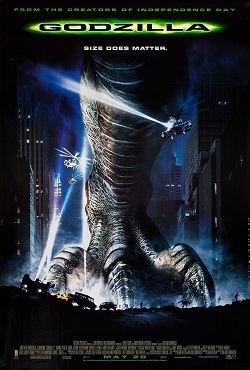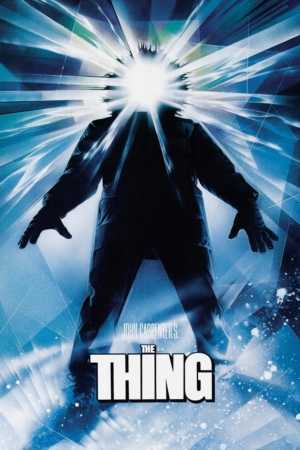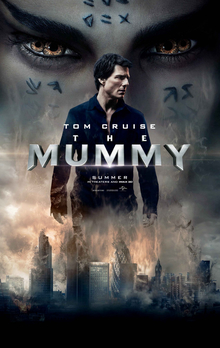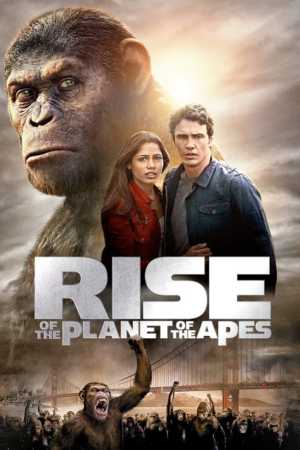Rise of the Remakes in Hollywood
When it comes to remakes, movie studios are no strangers to reviving old properties with new changes. However, remakes are a risky gambit that can either be huge successes or downright disasters. Most remakes tend to fail and only a handful have ever been either commercial or critically triumphant.
But the real question to be asked is what are the advantages or disadvantages of rebooting or remaking old properties for a new generation? Here are some pros and cons to making remakes.
Pro: Exposing A New Generation
 One advantage is the potential to expose a new generation of audiences to an old property but with significant changes from the original. Old Hollywood properties are ripe for modernization in today’s movie climate; audiences may be interested in seeing films that are based on classics.
One advantage is the potential to expose a new generation of audiences to an old property but with significant changes from the original. Old Hollywood properties are ripe for modernization in today’s movie climate; audiences may be interested in seeing films that are based on classics.
One example of a perfect remake that is considered by certain parties better than the original is True Grit. The Coen Brothers’ remake of the 1960’s classic Western film was praised by audiences and critics alike with some claiming that it was a much better than the original classic that inspired it.
According to the consensus on Rotten Tomatoes, the film was successful because of the actors’ performances and how the Coen Brothers directed the film. Sometimes in order for a remake to be a success is for there to be genius filmmakers and actors at work.
Sometimes old ideas can be revived with the potential to garner a new generation of fans.
Con: Judged By The Originals
 But introducing a new iteration of a classic movie can draw intense criticism, especially from fans of the original. This is a disadvantage for remakes because it can affect their overall box office success.
But introducing a new iteration of a classic movie can draw intense criticism, especially from fans of the original. This is a disadvantage for remakes because it can affect their overall box office success.
A majority of rebooted Hollywood franchises often face criticism for qualities that differentiate them from their original counterparts. This can be anything from how the characters are portrayed to how the new iterations’ tone is rendered.
The 1998 Godzilla was heavily criticized for diverging greatly from the original classic. One of the criticisms of the film was how the new version of the King of Monsters was designed. Fans and critics were infuriated that the titular monster strayed greatly from his original design. Thankfully, the 2014 reboot managed to keep the original design of Godzilla intact.
Part of the problem with remakes is that they will always be judged by fans of their original counterparts no matter the circumstances. A majority of remakes have had to deal with criticism for how they differ from their original source material.
Remakes will escape the judgment of how they compare to the original cinema masterpieces that inspired them.
Pro: A New Interpretation
 Despite remakes being critiqued for how they compare to the original film pieces, remakes open the door for reinventing the franchise as a whole by creating interpretations that are potentially pleasing to audiences. Certain films have either been critically acclaimed and/or commercially successful as a result.
Despite remakes being critiqued for how they compare to the original film pieces, remakes open the door for reinventing the franchise as a whole by creating interpretations that are potentially pleasing to audiences. Certain films have either been critically acclaimed and/or commercially successful as a result.
One film that managed to reinvent a classic was John Carpenter’s The Thing. Based on the 1950’s film The Thing From Another World, Carpenter’s version re-imagined the titular alien as a shape-shifting alien that can turn into beings it has assimilated. Panic among the crew of an Antarctic research station ensues as they are not only forced to do battle with the monster but with each other as they try to deduce the monster’s identity.
While the film was not a box office hit, it did gain critical praise for its atmospheric terror by exploring what happens when one never knows who to trust and has gained a cult following since then. This is a perfect example of how new interpretations of old properties can garner success either critically or commercially.
New directions for classic film properties have the chance to become very successful.
Con: New Directions Are Not Always A Good Idea
 But new directions when adapting old film properties for the modern cinematic industry does not always succeed. These new directions can deviate greatly either from the original film or from what it intended to be.
But new directions when adapting old film properties for the modern cinematic industry does not always succeed. These new directions can deviate greatly either from the original film or from what it intended to be.
One recent example is The Mummy starring Tom Cruise. The film is intended to be the start of Universal Studios’ Dark Universe, a cinematic film universe comprised of Universal’s classic film monsters such as the Invisible Man and the Wolfman.
The film upon its release was criticized by both audiences and critics alike, with one of the critiques being that the film’s focus on introducing the Dark Universe as being a flaw the film displays easily; the film failed to tell its own unique story by greatly hinting at what the Dark Universe would be bringing in future films. But another problem that plagued the film was that Cruise had too much creative control over the project and his creative oversight prevented the film from being better than it could have been.
A similar case would be The Amazing Spiderman 2, Sony’s second installment in their Amazing Spiderman reboot series. The film was criticized for having too much in it; there were too many subplots that prevented the film from telling a singular story. The film was too focused on preparing for the franchise’s planned spin-offs such as the now-canceled Sinister Six film.
Both The Mummy and The Amazing Spiderman 2 are cases of what happens when a rebooted film series takes the new direction and fails to execute it properly.
But while both examples mentioned above were based on older film and comic book film franchises, respectively, adaptions of old TV shows can fail as well, with the recent Baywatch film starring Dwayne “The Rock” Johnson and Zac Efron.
Pro: They Can Be Box Office Successes
 Making a remake of a classic film has the chance to be a financial success at the box office. Audiences may become interested in seeing a remake of an old film in order to see what filmmakers have done to modernize it for today’s audience.
Making a remake of a classic film has the chance to be a financial success at the box office. Audiences may become interested in seeing a remake of an old film in order to see what filmmakers have done to modernize it for today’s audience.
Hollywood is not always willing to take risks with new creative endeavors. Remakes of old franchises are used to because certain franchises are popular among moviegoers today who may or may not have seen the original material.
Filmmakers opportunity to re-envision an old film property can appeal to audiences depending on the film property. In recent years, Hollywood has been releasing remakes and reboots with certain properties proving to be successful.
A perfect example would be the rebooted Planet of the Apes film series beginning with Rise of the Planet of the Apes in 2011. The new take on the series is set in a much more grounded reality rather than a decimated Earth from nuclear fallout. Instead, the series follows the journey of its lead ape character Caesar, from his early childhood to adulthood as he tries to ensure his kind’s survival in a world nearly devoid of human life.
Remakes that get it right have the potential to be financially prosperous for film studios.
Con: They Can Be Box Office Bombs
 While remakes have the potential to be financially successful, they also have the chance to be complete misses. Sadly, this is the case for the majority of remakes that have come out over the years.
While remakes have the potential to be financially successful, they also have the chance to be complete misses. Sadly, this is the case for the majority of remakes that have come out over the years.
There are numerous examples of rebooted franchises that failed to live to up to expectations, no matter if the remakes are decent or if they are flat out disastrous from start to finish.
John Carpenter’s The Thing is a perfect example of a remake that was good but failed to make revenue for a film studio. What prevented the film from becoming a hit was that it was released the same weekend as Steven Spielberg’s E. T. the Extra-Terrestrial.
But this year was also a bad time for remakes as well. One example being the Baywatch reboot, starring Dwayne “The Rock” Johnson and Zac Efron, which is a perfect example demonstrating that star power alone will not save a movie from financial ruin.
In Baywatch‘s case, a big reason it bombed massively is that it was universally panned by critics, wherein an age where more and more moviegoers are relying more and more on reviews to decide what to see is a huge deal, and was also released during Memorial Day, which was one of the worst box office weekends in recent years. Like The Thing, the film also faced more aggressive competition during opening weekend, competing against the likes of Disney’s Guardians of the Galaxy Vol. 2 and Pirates of the Caribbean: Dead Men Tell No Tales.
In this age of remakes and reboots, box office bombs are bound to occur.
Remakes or reboots are Hollywood’s attempt to make revenue using old franchises. While they have been shown to be helpful in making studios money, most remakes or reboots have been failures at the box office.
The reasons are many and only time will tell if Hollywood continues this trend.
What do you think? Leave a comment.











Remakes always was a waste of time – and an insult to the original production team.
There was a very interesting interview with Mark Wahlberg talking about Contraband -which of course is a remake of a European orginal – that there just weren’t that many original stories coming out of hollywood. I guess deliberate recycling is seen as better than merely being derivative.
The next big thing is the “premake”, remaking of a prequel while the original is still being filmed…
Hollywood has been creatively redundant for years, perhaps since its inception.
It’s not time to give up on hollywood yet, there’s been a few original films recently that have been great.
I think audiences are perfectly happy to read subtitles, but hollywood constantly underestimates their audience’s intelligence and patience.
I agree. Tropes are fine. Reused plots or remakes are even okay to some extent. I think it was Shakespeare who said there are only 30-something original plots? But too much of any of this, and you definitely begin to feel the directors and actors think you’re an idiot. Sometimes it’s downright insulting, as in, “You’re trying so hard to be original, you’re actually making yourself more stale.”
Remakes… Let Me In would have been considered a lot better were Let The Right One In not to exist. Let Me In is at least a 7.5, maybe an 8, but Let The Right One In is close to perfect.
I feel we always need original films being made in Hollywood. Remakes are a trend that are counter productive to originality and force the film industry to die. Its the celluloid equivalent of inbreeding. What Hollywood needs is a fresh gene pool of original ideas.
Is the Hollywood remake dead? Probably not. Making the second film adaptation for a novel or similar? Maybe. Oversaturation is rarely a good start to making a profit.
I think the article hit the nail on the head.
Remakes are much in the same vein as bad sequels.
The Hollywood remake isn’t dead! Great ones like Judge Dredd, Highlander, Robocop, Carrie, Evil Dead, Dirty Dancing…
They should get back to doing dubbed versions of foreign language films to stop remakes.
I really enjoyed the remake versions of all the films.
I usually like remakes, and even like some better than the originals (for instance, I much prefer the 1998 version of The Parent Trap). I also love the idea of Disney doing live-action versions of animated movies because you can do so much more with the live-action medium (character development and so forth). With that said, I do wish Hollywood would work harder to adapt original content, or even come up with their own ideas for a change.
I think the problem with remakes is there is hardly any mystery surrounding most of them as we recognise the story, and so never truly draws an audience in completely. Of course, there can be good remakes but only when something distinctively new is brought to it; if there isn’t, it just seems like cheap nostalgia, lacking innovation.
I thoroughly enjoyed this analysis, as I too have thought greatly about the differences the successes and failures at Hollywood reboots and sequels.
Remakes usually boast improved special effects but are often uninspired. Sequels, prequels and the like are not much different. “Lazy” is how I would describe most of them. Studios like Disney still manage to release great remakes, though (i.e. The Jungle Book).
The examples used in this article were Hollywood remakes of older English-speaking films. I would be interested to see how this analysis changes when applied to the trend of Hollywood remakes of foreign language films. For example, there is a vocal criticism of American remakes of Japanese horror films (e.g., The Ring/Ringu, The Grudge/Ju-On, Dark Water/Dark Water, One Missed Call/Chakushin Ari). These criticisms stem not just from the artistic merit of the works, but also the ways in which race is taken up and cultural tropes are employed.
I really enjoyed the Planet of the Apes remakes. I think many things contributed to the success of the remakes. However, one thing I admired was the fact that the remakes referenced musical motifs used in the original series. It made me feel as if instead of trying to replace the original movies, the remakes were just intended to provide a new perspective. This was a great read, thank you!
Remakes can work well if they are not simply seen as money makers. Bringing a great story to a new audience should be done. I’m not talking about adding to a franchise, but something like Rear Window become Disturbia. It worked.
I believe that remakes aren’t exactly all cash-grabs like you’ve suggested. It’s mainly dependent on the directors and writers at the helm of the title. Take for example Blade Runner 2049 (not exactly a remake, yet neither is Rise of the Planet of the Apes as you mentioned), more so a reboot of the “franchise”. 2049 could’ve easily have been a film that just rehashed every single aspect of the original Blade Runner and modernise it to turn it into a major franchise. Instead, Denis Villenevue decided to pay homage and respect to the original by creating a sequel and soft-reboot by expanding the Blade Runner universe without setting up a franchise, and pay homage to the original by keeping to a similar direction of the original. If reboots and remakes have similar writers and directors to that of Blade Runner 2049, where it keeps certain aesthetic and directional aspects of the orignal, purely out of respect not for money, then I think they can easily work in the future.
Interesting, very interesting. I can’t help think that this entire process towards motion pictures is symptomatic of a few key things. Firstly, the industry may be flagging and it’s just different now – in 20 years we’ll look back and say we all saw it coming, but didn’t. Secondly and much more importantly i feel, is a suspicion that people don’t read as many books these days, hence their ideas themselves flag. Sounds awful to say, but i fear that could be what solves this problem – if it is a problem, i’m not sure if it is or not. If it was working, audiences would be pushed to think more, not escape more. When i read that Jaws (which was a book first) set a cornerstone in being a great film with a High Concept, i decided to only watch movies pre-Jaws, then work my way carefully forward (not making much headway past about 1982/except for Kubrick). As an arbitary axis point and as a general exercise it’s interesting to track the significance of marketing and what came to be releassed post-Jaws and it’s impact on the intellect of the narrative.
A remake of a TV series that was superficial and nonsense in the first place (Baywatch) versus a remake of a move (Planet of the Apes) make drawing conclusions difficult. This is a good essay that gets you thinking about remakes, some I liked (The Mummy) some I found just not so good (True Grit).